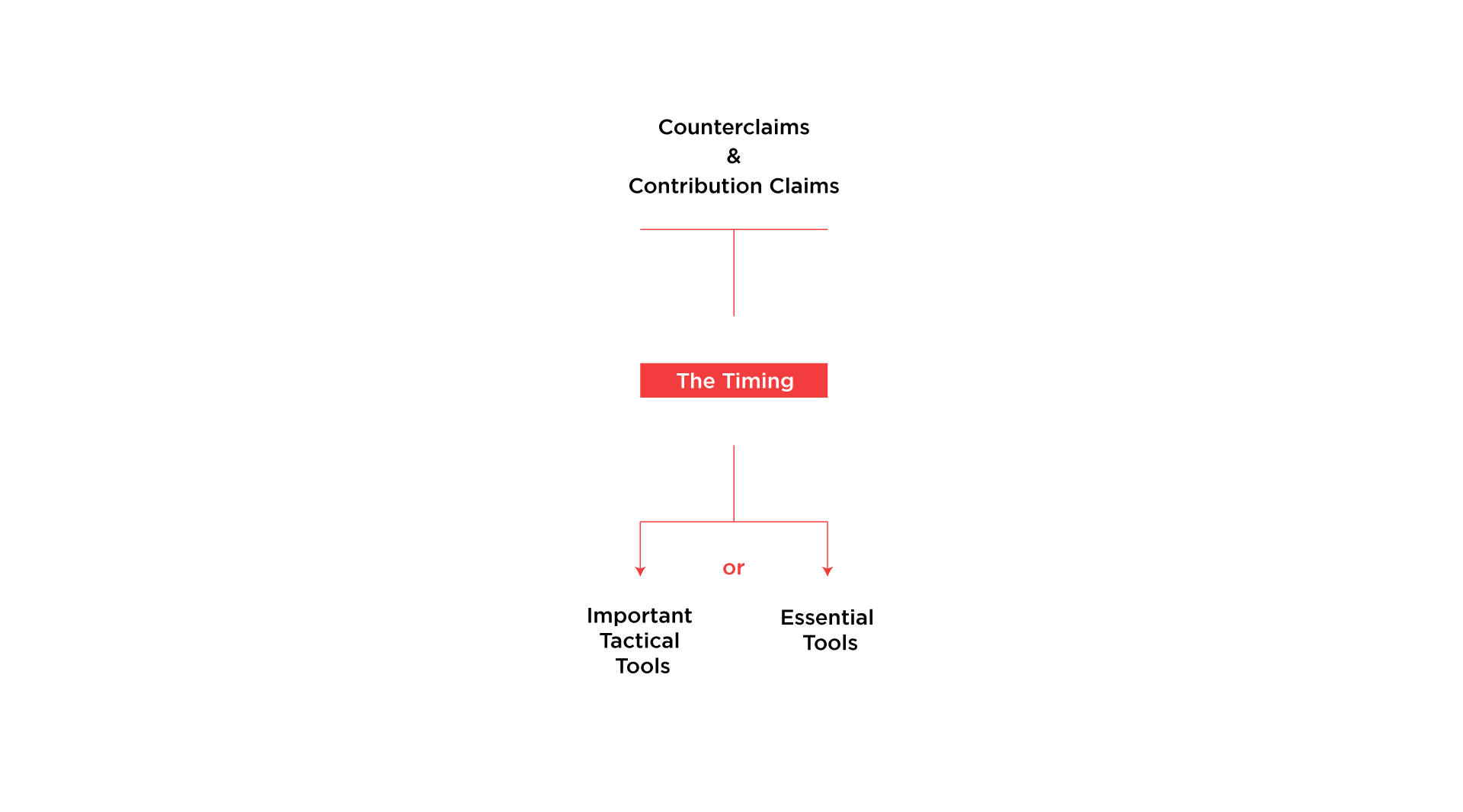Arbitral Enforcement: The Risk of Leaving the Counterpunch Too Late
Jason Woodland and Philip Gardner discuss the approach of the English Court to counterclaims in arbitral enforcement proceedings before the English Court.
Counterclaims and contribution claims are essential tools for defendants to Court and arbitral claims. On occasions they arise because both parties believe that they have claims and which of them is the Claimant is down to chance or speed of issue. In other situations they can be important tactical tools, whether to complicate the opponents’ efforts to succeed on their claims, or to shift the focus onto a third party as being truly responsible.
Given their importance, the timing of a counterclaim or contribution claim should always be carefully considered by each defendant or respondent. Recent decisions of the English Court, however, give a strong indication that one should not leave such claims to the point where arbitral enforcement is otherwise being pursued, as doing so risks having that claim shut out as a matter of English procedural law. The acute nature of this risk can be seen in the recent decision of Selevision Saudi Company -v- beIN Media Group LLC [2021] EWHC 2802 (Comm).

The proceedings were for the enforcement of an arbitral award granted in the DIFC arbitral centre in the United Arab Emirates. The underlying dispute was between Saudi and Qatar broadcasting groups regarding streaming of international sporting events in the Middle East and Saudi Arabia in particular. Selevision had brought arbitral proceedings against beIN Media Group for wrongfully terminating their agreement whereby Selevision streamed beIN’s sports programming in Saudi Arabia. beIN counterclaimed within the arbitration for certain alleged breaches of the distribution agreement. The arbitral tribunal upheld Selevision’s claim and dismissed the beIN counterclaim.
Selevision sought to enforce the foreign arbitral award in England and by the English Court pursuant to Part 62 of the Civil Procedure Rules. beIN indicated the intention to resist that enforcement and also sought permission to bring a counterclaim against Selevision. That counterclaim was much broader than the one that had been dismissed in the earlier arbitration. beIN, relying in significant part on a purported Selevision whistle-blower, alleged that Selevision had covertly facilitated pirate viewing of beIN programming in the Middle East by secretly funding, supporting and distributing beoutQ’s programming which had replaced beIN as the source of the relevant broadcasts. beIN further sought permission to join Selevision’s CEO as a party and to serve him out of the jurisdiction.

The key question for the Court was whether or not a respondent to arbitral enforcement proceedings in England was entitled to bring a counterclaim or contribution claim. There were then secondary questions as to whether to permit the respondent do so if the jurisdiction did exist, and whether to stay enforcement of the Selevision award pending determination of beIN’s counterclaim if it were to proceed.
The relevant legal test turned on whether phrasing in Part 62 of the Civil Procedure Rules that requires most arbitral enforcement claims to proceed as Part 8 claims included the incorporation of the rules governing Part 8 claims. By way of brief background, parties may (or, in certain circumstances including enforcing arbitral claims, must) use the Part 8 procedure where the claim does not involve complex factual disputes (and so long pleadings are unlikely to assist). The importance to this for beIN was that, if the requirement for arbitral enforcement under Part 62 to be initiated under Part 8 incorporated all of Part 8 then it could (pursuant to CPR r.8.7), bring a counterclaim or contribution claim, subject to the permission of the Court.
Mr Justice Butcher concluded that even if Part 62 required arbitral enforcement proceedings to be initiated by a Part 8 Claim Form this did not mean that the entirety of Part 8 (and thus the potential for a counterclaim and/or contribution claim was imported). The Judge noted that if such claims were available it would undermine the simplified method of arbitral enforcement that Part 62 is meant to be provide. Furthermore, such claims would have to be outside of the scope of the arbitral agreement (as otherwise they would have had to be brought in the arbitration), and cut across the enforcing party only invoking the English Court’s jurisdiction in order to enforce their award, and not submit wider disputes to the Court. Mr Justice Butcher noted that his decision was consistent with obiter dicta comments made by the Judge in Charge of the Commercial Court in VTB Commodities Trading DAC -v- JSC Antipinsky Refinery [2021] EWHC 1758 (Comm) and the conclusion that Part 8 was a procedural mechanism for bringing arbitral claims and not a rulebook for them, evident from Union Fenosa Gas SA -v- Republic of Egypt [2020] EWHC 1723.
Finally, the Judge said that even if he were wrong then he would have concluded as a matter of discretion that the counterclaim should not be permitted. In so doing he noted the limited factual and temporal crossover between the claim and counterclaim, the lack of connection or (absent the arbitral enforcement proceedings) jurisdiction for the dispute to be heard in England, and the fact that none of the conduct underlying the claims, evidence or witnesses would seem to be in the jurisdiction. The Judge did note that he considered (had it arisen) that he had jurisdiction to stay the enforcement of the arbitral award pending the determination of the counterclaim (contrary to Selevision’s contention), although in this instance he said that there would have been no basis to do so.

The judgment of Mr Justice Butcher continues an increasingly clear view of the judges of the Commercial Court as to the limits of counterclaims in arbitral enforcement proceedings.
This is an important consideration both for those seeking to enforce arbitral awards in England and those seeking to resist. For those enforcing it will give rise to increased confidence that such enforcement in England will remain relatively simple, efficient and cost effective. For those seeking to resist – or at least delay – the enforcement of arbitral awards in the High Court, it is an important reminder that one can leave a counterclaim too late and risk being shut out procedurally from advancing what may be valuable claims.



